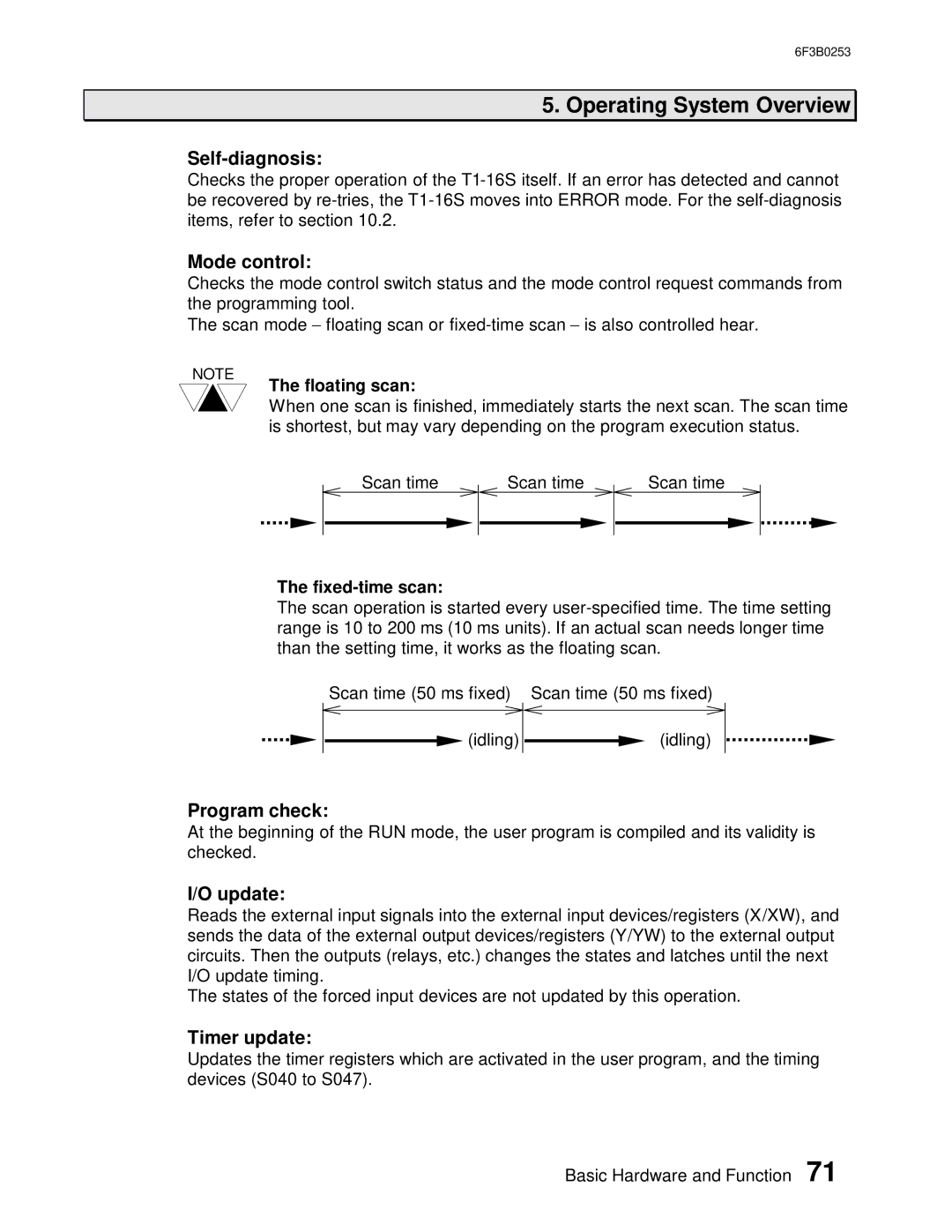
6F3B0253
5. Operating System Overview
Self-diagnosis:
Checks the proper operation of the
Mode control:
Checks the mode control switch status and the mode control request commands from the programming tool.
The scan mode − floating scan or
NOTE
The floating scan:
When one scan is finished, immediately starts the next scan. The scan time is shortest, but may vary depending on the program execution status.
Scan time
Scan time
Scan time
The fixed-time scan:
The scan operation is started every
Scan time (50 ms fixed) Scan time (50 ms fixed)
![]() (idling)
(idling)
(idling)
Program check:
At the beginning of the RUN mode, the user program is compiled and its validity is checked.
I/O update:
Reads the external input signals into the external input devices/registers (X/XW), and sends the data of the external output devices/registers (Y/YW) to the external output circuits. Then the outputs (relays, etc.) changes the states and latches until the next I/O update timing.
The states of the forced input devices are not updated by this operation.
Timer update:
Updates the timer registers which are activated in the user program, and the timing devices (S040 to S047).
Basic Hardware and Function 71
